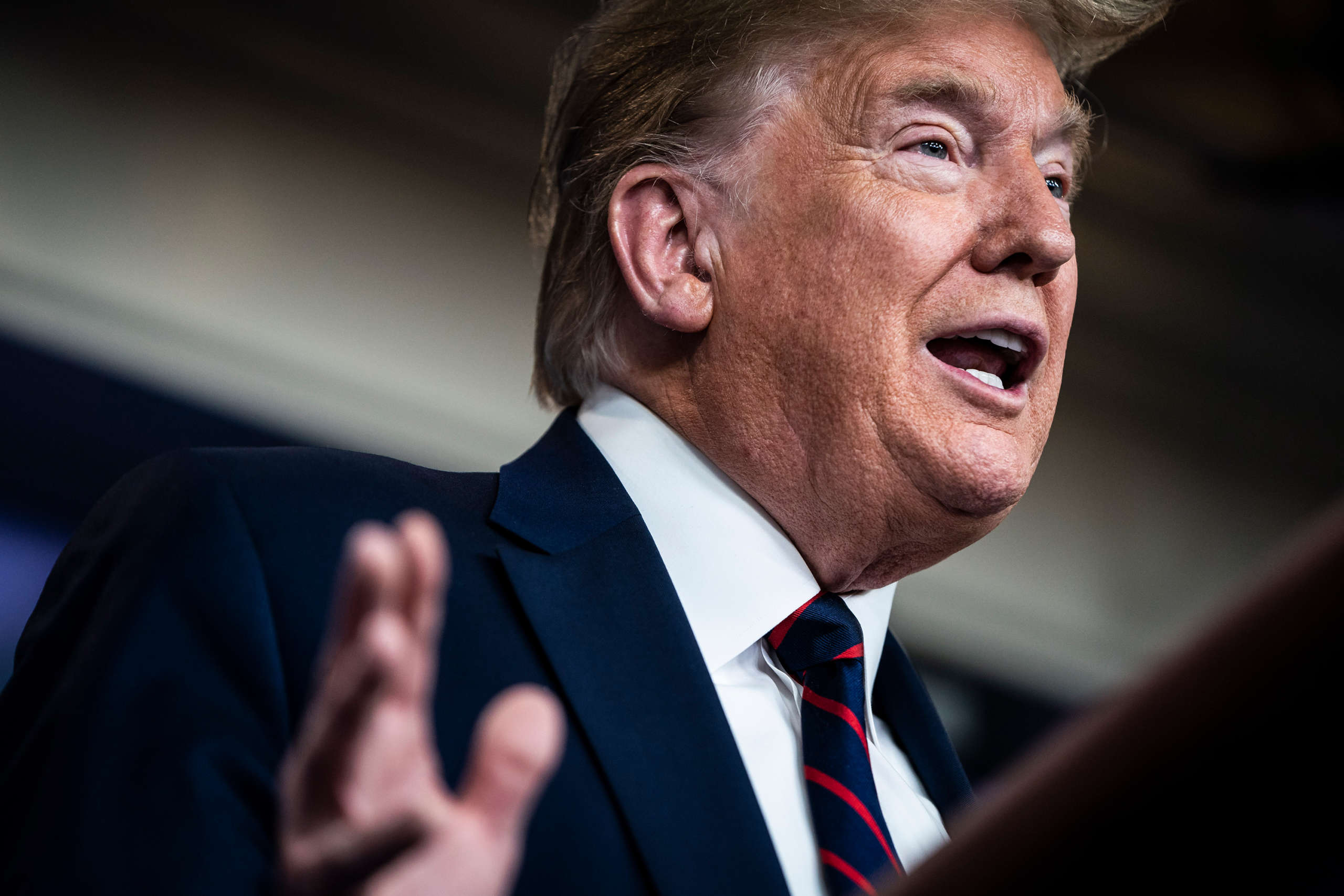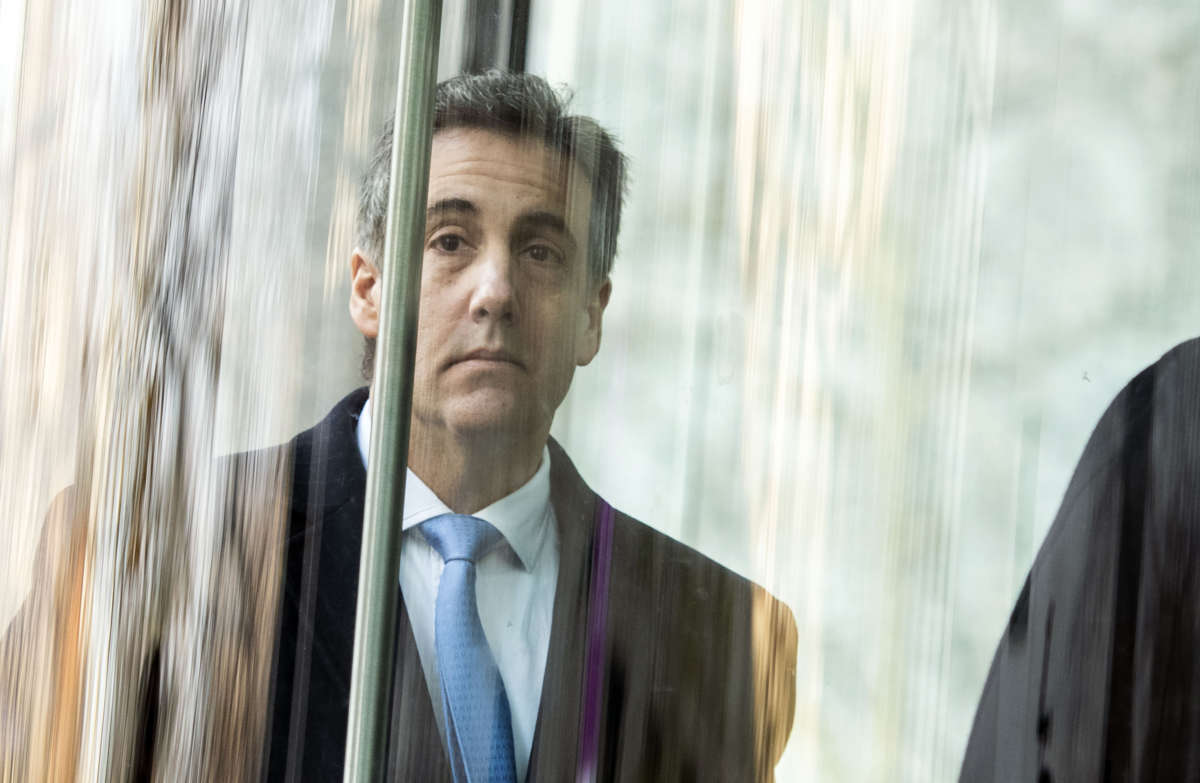Honest, paywall-free news is rare. Please support our boldly independent journalism with a donation of any size.
President Donald Trump, for a number of weeks, has persistently pushed an antimalarial drug he claims could help patients suffering from the ill effects of coronavirus, even though there’s no scientific evidence backing its use for that purpose.
The drug in question, hydroxychloroquine, has been touted by some doctors overseas as being successful in treating symptoms and COVID-19 itself, but other studies have shown minimal evidence of its effectiveness. Trump’s own expert immunologist on his coronavirus task force has noted, those anecdotal findings lack scientific backing, and more research is needed.
“The data are really just at best suggestive,” Anthony Fauci said on CBS’s “Face the Nation” Sunday. “There have been cases that show there may be an effect … and there are others to show there’s no effect…. So I think in terms of science, I don’t think we could definitively … say it works.”
That didn’t stop Trump, however, hours after Fauci’s appearance on the program, from continuing to sing the drug’s praises during a press conference on Sunday.
“What do I know? I’m not a doctor,” Trump said. “But I have common sense. The FDA feels good about it; as you know, they approved it.”
The Food and Drug Administration has approved hydroxychloroquine for use by those suffering from malaria, as well as for some lupus patients. But the FDA has not confirmed that the drug is effective for use against coronavirus.
Many have wondered why Trump continues to tout the drug, then, when his medical experts say it shouldn’t be promoted in such glowing terms. Some, such as MSNBC “Morning Joe” co-host Mika Brzezinski, have suggested there might be a financial component that’s motivating the president.
“A lot of people would say, follow the money,” Brzezinski said on a recent episode of the program. “There’s got to be some sort of financial tie to someone somewhere that has the president pushing this repeatedly.”
While no direct financial ties have been found linking Trump to the drug, some indirect ones are surfacing.

Trump’s former “fixer” lawyer Michael Cohen, who is serving a prison sentence after pleading guilty to a number of election-related charges, had in fact crafted a contract with a Swiss-based drug company called Novartis, one of the biggest manufacturers of hydroxychloroquine in the world. In exchange for paying Cohen $100,000 per month for over a year starting in February 2017, the company expected Trump’s lawyer to provide them with access to the president’s attitudes on health care policy, including provisions in the Affordable Care Act that were relevant to them.
The payments were officially made to Cohen’s shell company, Essential Consultants LLC, which collected a number of payments from other companies as well that sought the same privileges. (Through that company, Cohen also paid off adult film actress Stormy Daniels with “hush money” payments that were made to keep her quiet about an affair she had had with Trump years ago.)
The deal was a bad one for the company, Novartis later admitted. They believed Cohen would get them deeper insights on the president’s thinking than what he delivered — unfortunately for Novartis, they couldn’t back out of the agreement even after deciding, following one meeting with Cohen, that they didn’t need his services after all.
“As the contract, unfortunately, could only be terminated for cause, payments continued to be made until the contract expired by its own terms in February 2018,” the company said in a statement.
It’s unclear at this time to what extent Trump knew about Novartis’s payments, or whether it influenced him one way another — or even if Trump himself has interests in the company, due to his refusal to release his tax returns and other financial documents.
A terrifying moment. We appeal for your support.
In the last weeks, we have witnessed an authoritarian assault on communities in Minnesota and across the nation.
The need for truthful, grassroots reporting is urgent at this cataclysmic historical moment. Yet, Trump-aligned billionaires and other allies have taken over many legacy media outlets — the culmination of a decades-long campaign to place control of the narrative into the hands of the political right.
We refuse to let Trump’s blatant propaganda machine go unchecked. Untethered to corporate ownership or advertisers, Truthout remains fearless in our reporting and our determination to use journalism as a tool for justice.
But we need your help just to fund our basic expenses. Over 80 percent of Truthout’s funding comes from small individual donations from our community of readers, and over a third of our total budget is supported by recurring monthly donors.
Truthout has launched a fundraiser to add 500 new monthly donors in the next 9 days. Whether you can make a small monthly donation or a larger one-time gift, Truthout only works with your support.
